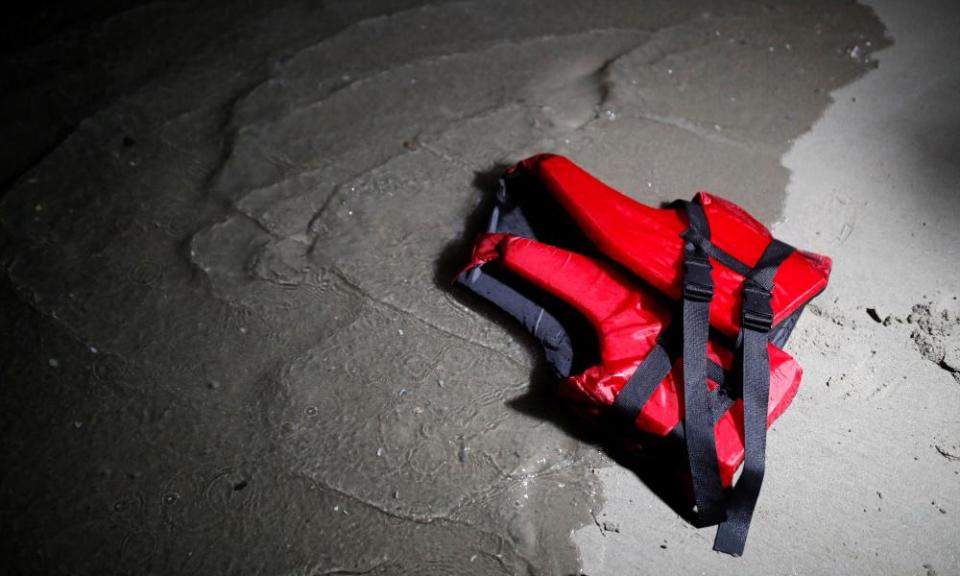BBC names 20 of the people who drowned when dinghy sank in Channel

Most of the people who lost their lives when their flimsy dinghy sank in the Channel last month have been named for the first time in a new investigation.
The BBC World Service has named 20 of the people who travelled to the UK in search of a better life but drowned in the early hours of 24 November.
The investigation has pieced together the final hours of the overladen dinghy’s journey. Official reports say there were at least 31 passengers on board, including a seven-year-old girl, but relatives of those who drowned believe there were 33 on the boat. Not all of the bodies have yet been found. French media has reported that three bodies recently washed up on the beach in Calais, but they have not yet been identified.
Among those on board were members of the same family and people who had formed friendships. All hoped the UK would provide them with sanctuary and safety.
Many of those who died were from Iraqi Kurdistan, but there were others from Ethiopia, Afghanistan, Somalia and Egypt. Of the 27 bodies recovered, seven were women, two were teenagers and one was a child.
Many had tried to reach the UK multiple times before, either by dinghy or using other means.
The final phone messages pieced together by the BBC reveal a chilling change of tone, from optimistic messages when people first boarded the boat to a growing sense of fear and panic when its engine failed. The right side of the boat later deflated and started to take in water.
A message from one of those who died, “Hybar” Bryar Hamad Abdulrahman, 23, said: “We are starting our journey tonight. Pray for us.”
The stretch of sea they crossed, between Calais and Dover, is 21 miles wide. The Channel is the busiest shipping lane in the world.
According to the BBC report, the dinghy is thought to have cost about £400 and had space for no more than 20 passengers.
The journey is thought to have started at about 10pm and things seemed to go well until about 1.30am when water started coming into the dinghy as one side deflated. Things deteriorated drastically when the boat’s engine failed at about 2.30am. The boat is thought to have sunk within 30 minutes.
The passengers were left clinging to the remains of the dinghy in icy waters.
At 3.42am, two passengers succeeded in getting through to British authorities who are thought to have asked for their location and told them to keep their phone torches on to help rescuers find them. But the phones are reported to have slipped into the water before they could do this.
One of the survivors, Mohammed Isa Omar, told the BBC: “I saw people dying in front of me.”
He said that was is a strong swimmer and managed to swim to a ship, which rescued him.
By the time daylight came, there were two sightings of dead bodies: the first by people in another dinghy who phoned emergency services; the second by French fisher Karl Maquinghen and his crew on the trawler Saint Jacques II, who saw 15 bodies in the water.
The maritime border between the UK and France in the Channel is not a clear one. Relatives of those who lost their lives have started a legal case asking for a public inquiry so that the full facts of what happened that night – the position of the dinghy at various times and the calls to and responses from the various emergency services – can be known.
The 20 dead named by the BBC are:
Kazhal Ahmed Khidhir, mother of: Hadiya Rzgar Hussein, 22; Mubin Rzgar Hussein, 16; and Hasti Rzgar Hussein, seven.
Baran Maryam Nuri Mohamed Amin, 24; Mhabad Ahmad Ali, 32; Rezhwan Yasin Hassan,19; and Mohammed Qadir Aulla, 21.
Deniz Afrasia Ahmed Mohammed, 27; Bilind Shukir Baker, 20; “Hybar” Bryar Hamad Abdulrahman, 23; Harem Serkaut Perot Muhammad, 28; and Hassan Mohammed Ali, 37.
Mohammed Hussein Mohammed, 19; Muslim Ismael Hamad, 19; Shakar Ali Pirot, 30; Sirwan Alipour, 23; Zanyar Mustafa Mina, 20; Pshtiwan Rasul Farka, 18; and Twana Mamand Mohammed, 18.

 Yahoo News
Yahoo News 